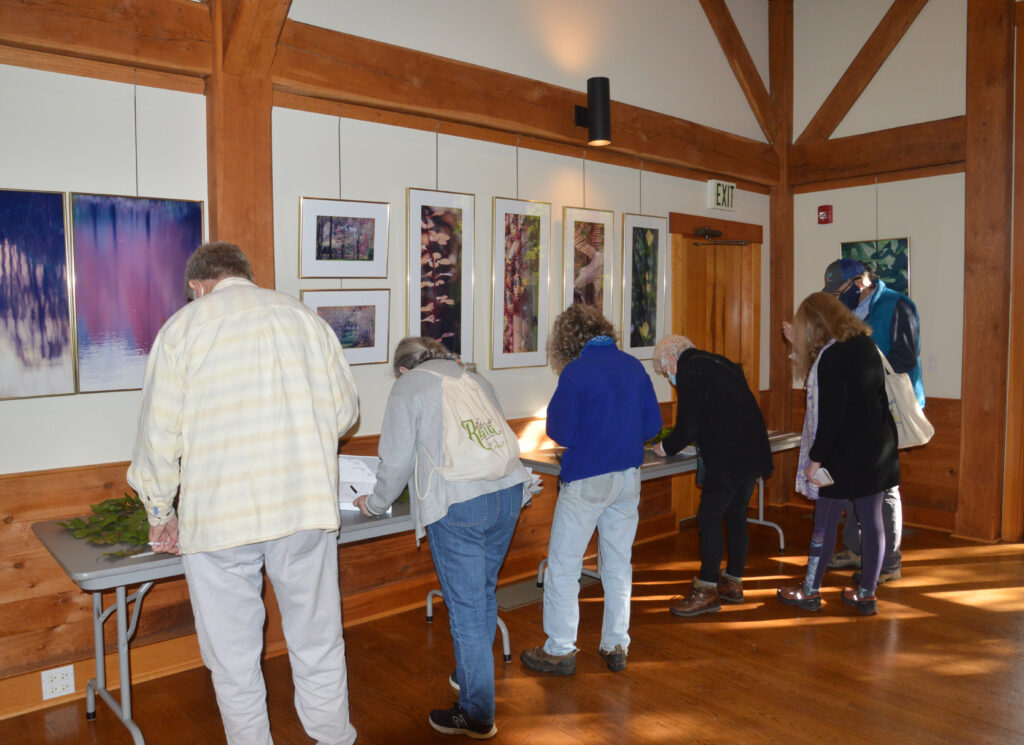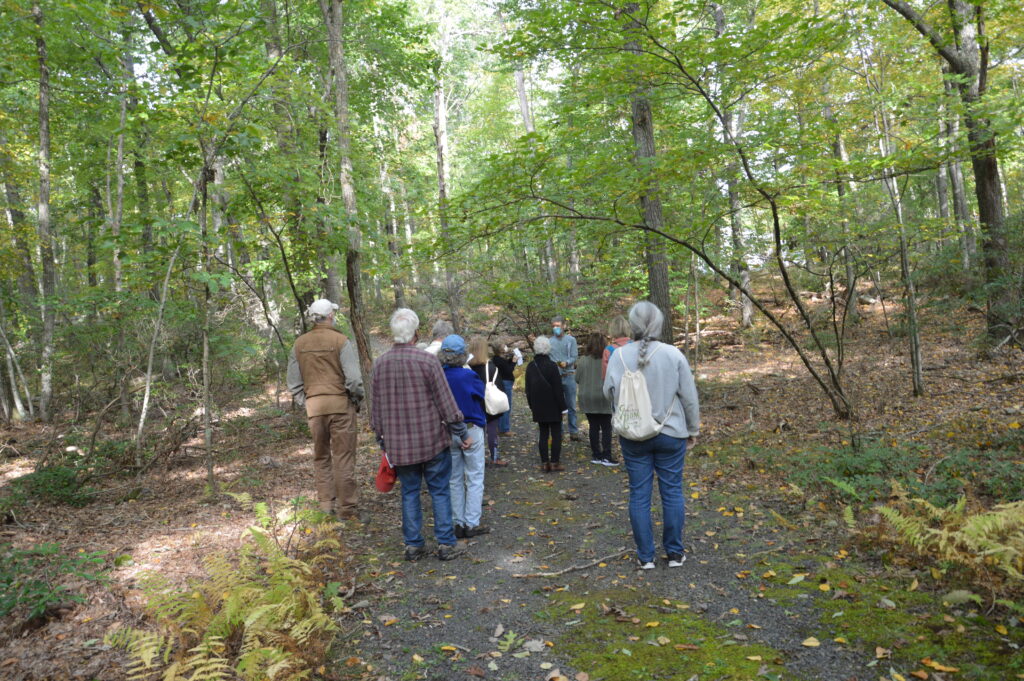More than a dozen visitors honed their oak tree identification skills during a program entitled “Know Your Oaks,” the first in-person event at the Highstead property since Covid shut the facility down in March 2020.

Highstead Operations Director Geordie Elkins walked the participants through the value and characteristics of oak trees, with an emphasis on the oak varieties found at Highstead.
As a keystone native plant species in the region, Oak trees provide a food source and habitat for dozens of varieties of caterpillar, as well as insects and birds. And the copious acorns provide a critical food source for mammals, from chipmunks and squirrels to bears.
Oaks are also an important source of lumber for building and furniture and are culturally important as the subject of stories, poems, myths, and lore. At Highstead, oak trees are a pervasive presence, from our landscape to the logo, which features white oak leaves. The barn landscape features trees grown from acorns that Mrs. Dudley brought from Long Island in the 80s, and the barn is constructed out of white oak.
Participants were instructed on a basic method for identifying plants, which includes gathering as much information as possible about leaves, flowers, stems, fruit, bark, time/season, geographic location, and habitat.

Using a pamphlet and oak key Geordie developed with Albert Paolini in the 1990s, the group learned to differentiate between the red/black group of oaks and white oaks using a variety of clues from the leaf shape and the presence of lobes and sinuses, to the proportion of cap to nut on an acorn and finally its position on the landscape, often an important differentiator.
Guests were first invited into the barn to study specimens collected on the Highstead property then took a leisurely stroll along Highstead’s woodland paths to test their knowledge and collect a few acorns to plant at home.
With the success of this event, the Highstead team is looking to increase events in the spring, provided Covid rates in the region continue to decline.